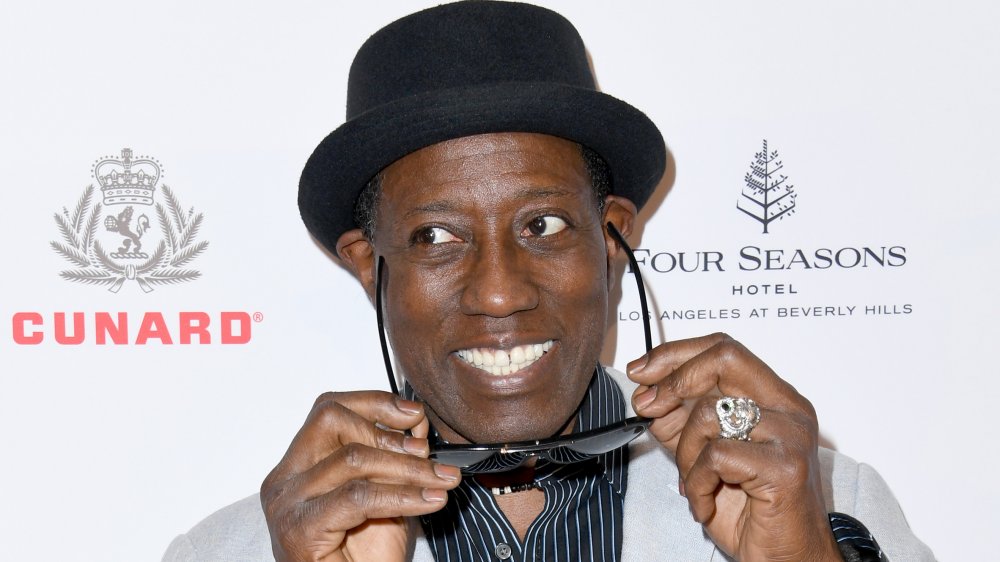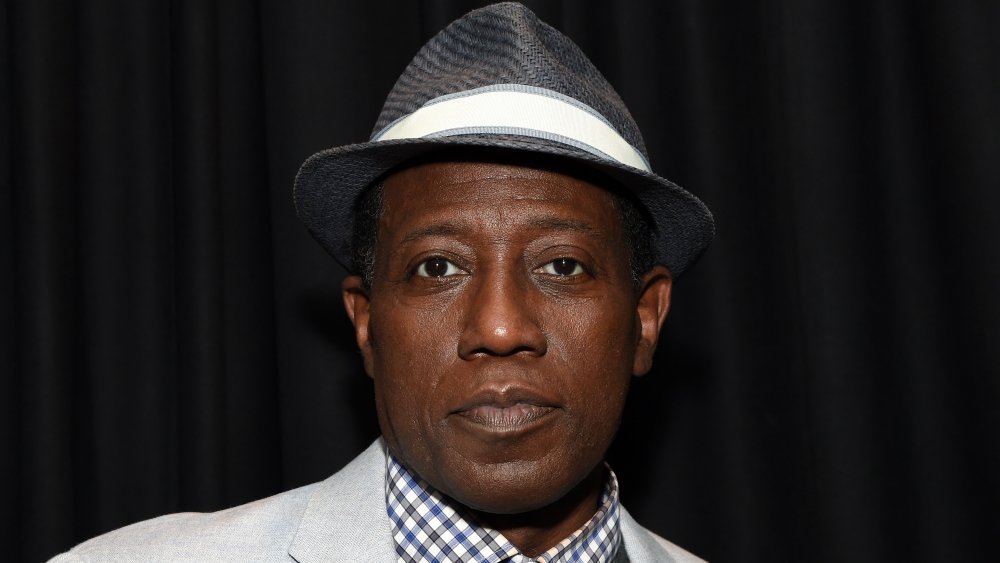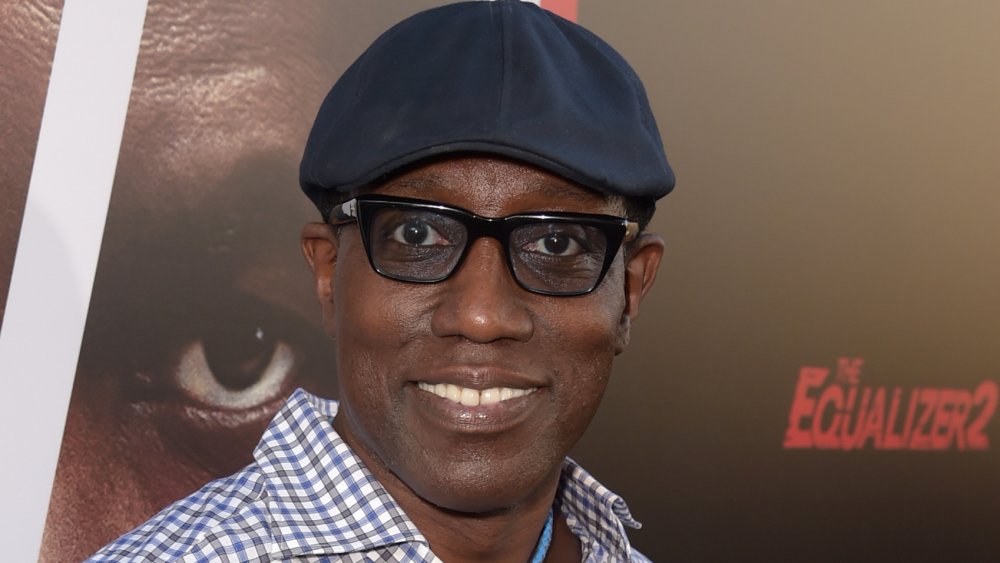Wesley Snipes FINALLY Reveals Why Hollywood BLACKLISTED Him

Back in the day, Wesley Snipes was a top dog in the industry, raking in almost ten million dollars for a movie. However, somewhere along the way, things went seriously wrong for the actor. Directors didn’t want to cast him, studios didn’t return his calls and co-stars had nothing nice to say about him in interviews.
From all angles, it looks like Wesley was a bag egg to begin with. However, this is where Snipes turns the tables. According to him, the downfall of his career wasn’t a him problem but a them problem. In his words, Snipes was given the boot simply because he stepped on the wrong toes. And guess what? His grievances are shared by many other black actors in the industry. Just what’s the scoop here? Was Wesley Snipes really blacklisted by Hollywood? And if so, why? Let’s find out.
Here’s Why We Don’t See Much Of Wesley Snipes Anymore
Wesley Snipes is an American treasure — or, at least, some could make a strong case for that in the late 90s. Once upon a time, the Florida-born actor was a big name who was in high demand, nabbing numerous blockbuster movie deals.
That being said, somewhere along the line, the multi-hyphenated actor started being attached to more and more problematic headlines and less box-office hits. Snipes was seemingly blackballed during the late 90s and well into the 2000s. But why? Well, in addition to reports that revealed Snipes was difficult on set, the actor also didn’t shy away from sharing the hidden truths of Hollywood and its politics behind closed doors. It was also no secret that Snipes had frequent run-ins with the law for a mixed bag of reasons.
While we don’t hear about the Blade star as much these days, there’s no question that his legacy as the human-vampire hybrid — as well as many other iconic roles in film and TV — will continue to live on and be admired (potentially from afar).
Wesley Snipes highlighted disparities in Hollywood

Jon Kopaloff/Getty Images
According to Celebrity Net Worth, Wesley Snipes was discovered in 1985 at the age of 23 during a martial arts competition of all places. Snipes quickly became a face and talent many wanted to work with. He popped up on Miami Vice in 1986 as a drug dealer and played the bad guy again in Michael Jackson’s music video for “Bad” the following year. Snipes had a steady career in film, which included the box-office hit Major League, the heart-wrenching drama Jungle Fever, and Sugar Hill.
At the height of his stardom, Snipes used his platform to shine a light on the discrimination he experienced in Hollywood. In a 1991 interview with journalist Jae-Ha Kim, Snipes spoke about not wanting to play less redeeming characters as a black actor just because it was expected.
“I think that some people may mistake my comments about not wanting to do ‘stereotypical’ parts for not ever accepting a role as a gang member or drug lord again,” he said. “That’s not true, because if a great role comes up and he happens to be a pimp, I’ll do it. So many scripts out there have African-Americans portray worthless people because it’s accepted, and the roles have no redeeming values.”
He continued, “It’s sort of similar to the analogy of pretty women in Hollywood being offered parts where they are undressed or are basically window dressing. I don’t want prejudice to ever become acceptable and the norm, because it’s not.”
Wesley Snipes’ career slowed down following a highly publicized LAPD stop-and-frisk

Michael Kovac/Getty Images
It could be argued that Wesley Snipes’ view of the treatment of people of color in America made him a target of sorts. His claims of lesser treatment were seemingly affirmed after the actor was stopped by a Los Angeles police officer in 1991. The Los Angeles Times reported that Snipes alleged he was racially harassed during a downtown traffic stop.
The police claimed Snipes had stolen the car he was driving. However, it was later reported that the car was actually leased by Snipes’ production company and was mistakenly reported. According to the Los Angeles Times, the actor was “forced to lie face down on the pavement, where he was spread-eagled and handcuffed while one officer kneeled on his neck and held a 9-millimeter handgun to his head.”
“I’m asking them basically what did I do wrong,” Snipes said at the time, “but they wouldn’t tell me.” Following the incident, which also led to a public press conference attended and supported by fellow black actor Blair Underwood, Snipes career drastically slowed down.
While Snipes appeared in numerous films throughout the 90s, a majority of them weren’t very well-received.
Wesley Snipes was uncooperative on the set of ‘Blade: Trinity’

Kevin Winter/Getty Images
Over the years, Wesley Snipes has made headlines for all the wrong reasons, including a misdemeanor involving a loaded, semi-automatic pistol; a high-speed police chase on his motorcycle (which he crashed); and tax evasion charges, which amounted to $7 million. In addition to personal and legal mishaps, Snipes was also reportedly difficult on movie sets.
1998’s Blade was — and arguably still is — one of the greatest superhero movies; a black, crime-fighting vampire with martial arts skills? There was nothing like it and hasn’t happened again since. Blade grossed $131,183,530 worldwide, per Box Office Mojo, and led to two sequels, Blade II and Blade: Trinity. Snipes worked on both, however, he was accused of causing some drama on set.
“I remember one day on the set — they let everyone pick their own clothes — there was one black actor who was also kind of a club kid. And he wore this shirt with the word ‘Garbage’ on it in big stylish letters. It was his shirt,” actor Patton Oswalt told The A.V. Club in 2012. “But [after seeing the actor] he comes on and goes, ‘There’s only one other black guy in the movie, and you make him wear a shirt that says ‘Garbage?’ You racist motherf***er!’ And he tried to strangle the director, David Goyer.”
Even though Snipes’ movie career seemingly peaked in the early 90s, Blade’s legacy will truly be one for the ages.
Read More: https://www.nickiswift.com/214256/heres-why-we-dont-see-much-of-wesley-snipes-anymore/





